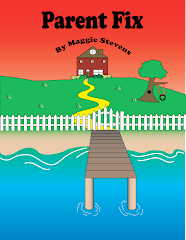Unfortunately, the society our children are growing up in is rooted in meanness. Although, this is not a new phenomenon, it does seem to have escalated in recent years. Parents should be concerned when their kids are being mean and also when people are mean to their kids. In today’s world many of the adults and peers your child must deal with use sarcasm, teasing, name-calling or other behaviors that is degrading. Much of this behavior might be considered close to or akin to bullying behavior.
It seems that in today’s society you cannot get away from it. Many of today’s television programs thrive on meanness. Much of the humor on TV these days is mean-spirited stuff; a lot of anger and dysfunction disguised in family sitcoms and reality shows. If kids continually see and hear it, they will mimic it. Television is not the only cause, but it does add to bad behavior.
It is important that your children can distinguish between the positive and the negative. Once they understand and feel the difference, they will strive to fill their lives with positive influences and surround themselves with uplifting people. This knowledge not only helps them through the teenage years, but as adults when dealing with co-workers, bosses, friends and raising children(your grandchildren).
How do you help your child not emulate this edgy behavior?
1. Make sure in your home you do not use sarcasm as a form of humor. Too often the negative behaviors our kids imitate begin in the home. As parents we may not even realize it, but our humor may be mean. Humor is important in our families, but it is important to make sure when we laugh it is at the situation, not making fun of another person. The attitudes and behaviors of our children begin with the parents.
2. Help your child be aware of meanness and where it is coming from. You do not want your child to feel bad about themselves when they are bullied, made fun of or belittled. It happens to everyone at some point in their lives. So help your children understand this meanness is not about them. Rather, it is showing the insecurities about the person who is attacking them.
3. Monitor the programs your child is watching on television. Script writers are taught to create conflict. There is deliberate casting and deliberate provocation because it boosts ratings. Because it makes the show funnier, often this meanness is disguised in nice family sitcoms. Watch programs with your children and point out the meanness. Your child is capable of understanding how a comment or an incident can hurt someone’s feeling, even if it is funny. Help your kids understand what is appropriate and not appropriate behavior.
4. Teach your child to walk away. If someone is treating your child in a negative manner, they need to know it is O.K. to remove themselves from the situation; that includes a friend, a teacher, a coach, a boss...anyone who affects them in a negative way. You want your child to know they are of value and not allow anyone to treat them this way.
Tuesday, May 10, 2011
Subscribe to:
Posts (Atom)




